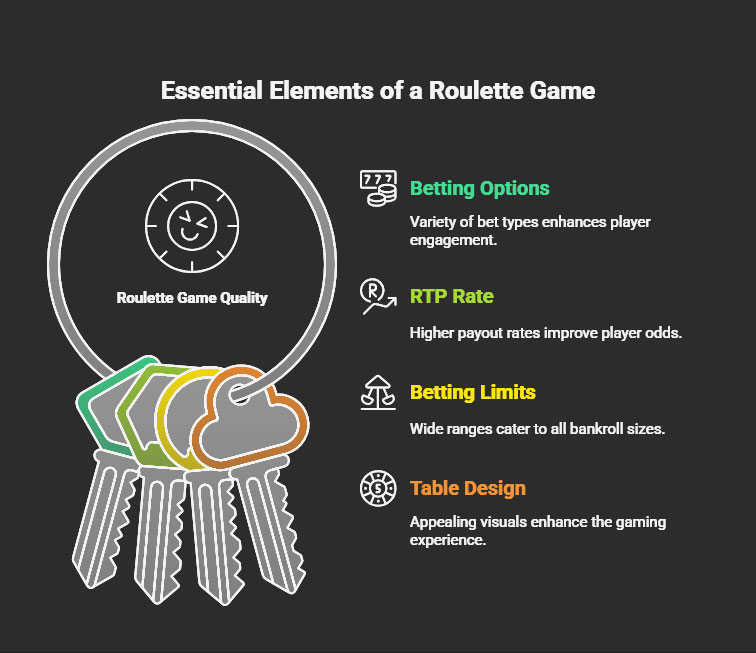
Are Slot Machines Rigged?
Published by Mike Malkovich on January 21, 2025

Published by Mike Malkovich on January 21, 2025
The gambling industry is one of the most tightly regulated sectors in the world. There are advanced randomization technologies behind every game and strict regulations governing every creator and operator.
Despite this, questions like “Are slot machines rigged?” are still some of the most commonly searched phrases, and if you check any casino review page and filter the negative reviews, you’ll see scores of people complaining that the casino’s games must be rigged.
It’s a contradiction—how can an industry be constantly scrutinized by regulatory authorities and still have players doubting its legitimacy
🎰 ARE SLOTS RANDOM OR RIGGED?
All slot machines are governed by something known as a random number generator (RNG). It’s a computer program that continuously cycles through a series of numbers, assigning those numbers to specific actions and outcomes.
When the player hits “Spin”, the RNG stops on a number, and that determines the outcome.
Imagine, for instance, that you have a six-sided die. The first two numbers lose money, the third gives you a win, and the remaining three result in a tie. Hitting “Spin” on a slot is just like rolling that die and seeing if luck is on your side.
🔄 ARE SLOTS 100% RANDOM?
The casino or the player can’t influence the outcome of an RNG. They can create the RNG software, and technically, they can manipulate it in their favor, but that would suppose that casinos are the ones who create the slots and have the final say on them.
That’s simply not the case.
Slots are created by regulated third parties who then license them to casinos. The technology in the slot is verified by an independent organization before it reaches the casino, and the casino is also regulated and vetted to ensure it operates fairly.
🎯 CAN CASINOS CONTROL SLOT PAYOUTS?
Many established casinos work with developers to create specific slots tailored to their needs. Usually, it’s more about following a certain theme or using specific branding than any kind of payout manipulation, but the casino can tell the developer what kind of payout it’s looking for.
This information will then be presented as an RTP, which stands for Return to Player. It’s a percentage that’s calculated by running millions of simulated spins. If, for instance, the simulated spins return 96% of the total stake, that 96% becomes the RTP.
At the beginning of this article, we mentioned the prevalence of negative reviews complaining about slots being rigged. Many of these mention some kind of button that the casino presses to change a player’s fortunes.
The story usually goes something like this, “It wasn’t my day. I lost again and again. They clearly had something against me and pressed the big button to ensure I didn’t win”. We’ve also seen many variations of, “I was winning and doing very well, but then I couldn’t even buy a win. Someone clearly had an issue and pressed that big red button”.
Needless to say, there is no such button. The casino can’t control what players win or lose in this manner, nor does it care whether a single player hitsa winning or losing streak.
💬 WHY DO PLAYERS THINK SLOTS ARE RIGGED?
There are several reasons why players believe slots are rigged.
The most common is that they don’t understand the idea of randomization. It’s understandable, as it’s something we all struggle with.
Take roulette as an example. Imagine that the roulette wheel has landed on red 10 times in a row. What color is most likely to appear next?
The answer should be obvious—black has the same chance of appearing as red. But if you ask 100 people that question, a surprising amount will tell you it’s black because it’s “due” or it’s red because it’s on a good run.
It’s the same with slots. Every spin occurs independently. Previous player spins don’t come into the equation. But it’s hard to fully grasp that concept when you’ve been on a winning streak, and all of a sudden, you hit 30 losing spins in a row. It can feel like the universe—or the casino—is working against you.
If we return to the dice example, the fact there is one winning number and three ties means you have a greater than 50% chance of not losing. But that doesn’t mean you can’t roll a losing number 10 times in a row or get lucky and win 10 times in a row.
It’s unlikely, but not impossible, yet when players face an unlikely scenario, they are more likely to cry foul than accept it’s all part of the randomization process.
🏢 THE GAMBLING INDUSTRY IS A BUSINESS
Everything in the gambling industry is carefully measured to ensure a profit while also guaranteeing randomness and fairness at every turn.
The casino focuses on the profit side while the regulators, auditors, and certifiers keep everything fair.
Sure, casinos can control slot payouts, and theoretically, they could lie about the RTP/payouts. But, in doing so, they would be putting their own reputation and license at risk. They would be gambling with their livelihood, and one of the key things to remember about this industry is that the casinos are never the ones gambling.
✅ WHY THERE IS NO NEED TO RIG SLOT MACHINES
Every player has a chance of winning big playing slots. Ten players could walk into a casino and walk out with a pocketful of cash. The casino doesn’t care. The house edge/RTP means the casino will still be the one profiting in the longterm.
You have no doubt heard the expression, “The house always wins”. It doesn’t mean that the casino will beat every play. If that were true, a jackpot winner would need to hang around and blow all of their winnings, and considering the size of some progressive jackpots on small-stake modern slots, they’d better cancel their plans for the next five years and pitch a tent on the casino floor.
It means that once all plays and all players are considered, the casino will come out on top.
And we’re not just talking about a few bucks here.
The global slot machine market is worth around $10 billion today, and it’s expected to grow to over $30 billion within the next decade. It’s a lot of money, but it’s just a small slice of a very large pie, as the global gambling industry is worth over $220 billion.
The best answer to the question of “Is a casino rigging its slots?” is “Why would they bother?”. If you’re guaranteed to make a profit by playing fairly, abiding by regulations, and doing everything you can to stay licensed and remain in business, why would you risk it all just to add a few extra percentage points to those profits?
Sure, they could get greedy. It wouldn’t be the first time that a company has turned to illegal methods to eke out a little more profit. However, the regulations are so tight and operators are so closely scrutinized that it would almost certainly result in immediate action.
💡 IS THERE A TRICK TO WINNING SLOTS?
There is no way to consistently win with slots. The results are determined purely by chance, and no amount of strategy can change that.
Some players argue otherwise, of course. But usually, if someone is claiming they have the secret to beating slots, it’s because they’re doing something illegal or trying to sell you something ineffective.
There are ways to nudge luck in your favor, but they won’t guarantee success:
- 🧾 Create a bankroll: Always budget for the month, week, and session, and never exceed that budget. Your bankroll should be built using disposable income and never taken from your savings or the funds you use to pay bills.
- 🎯 Check the volatility: The volatility level determines the risk. Higher volatility means there will be long periods without success interspersed with big wins; low volatility slots do the opposite. Stick with higher volatility for long sessions and low volatility for short ones, as the former will give you a chance to offset the barren periods, while the latter will mean you won’t walk away empty-handed.
- 📈 Check the RTP: The RTP shouldn’t be taken as gospel. As noted above, it’s calculated over millions of spins, so a difference of 0.1% won’t mean much if you’re only taking a few dozen spins. You need every edge you can get, though, so look for higher RTP games where possible.
- 🛑 Don’t increase your stake: Stick with your budget. Don’t bump up your wager because you’re on a winning streak and want more money or because you’re chasing losses.
📌 SUMMARY: ARE SLOT MACHINES RANDOM OR PROGRAMMED?
To summarize, slot games are 100% safe, random, and fair whether you play at land-based casinos or online casinos:
- ✅ Slot machines are random, thanks to RNG technology
- ✅ The technology is certified by third-party auditors
- ✅ Casinos and developers are licensed and regulated
Finally, remember that casino games are profitable even without being rigged—the player is the one gambling, not the casino.









